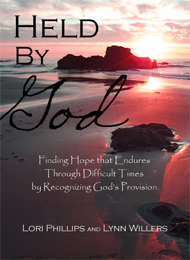 A word fitly spoken is like apples of gold in settings of silver. Proverbs 25:11, NKJV
A word fitly spoken is like apples of gold in settings of silver. Proverbs 25:11, NKJV
A few years back, I was at a Women of Faith conference where the dramatist presented a sketch focusing on the destructive power of the tongue. It began with a young girl trying to process various messages spoken to her by authority figures in her life—parents, teachers and pastors. As time went on she received additional messages from neighbors, classmates, and friends. With each statement, she would listen intently, mull over what was said and then she’d pick up a bag. Initially the bags were small like a lunch sack, but as she absorbed each new message, the bags became increasingly larger—and heavier. The sketch shows her progression into adulthood with her growing collection of bags. Finally, with bags over both arms, on her back and around her neck, she can barely walk forward. She struggles to cope beneath the weight of all her baggage until she collapses in a heap at the foot of the cross, where Jesus takes all of her burdens from her.
It was a powerful illustration of the potential damage our words can bring to others. “Why can’t you be more like your sister?” “You know, you really need to watch your weight.” “Pastor So-and-So would be so disappointed if he could see you now.” “If you just tried a little harder, you could be as smart as those other kids.” My first reaction to the sketch was one of understanding. I too carry the baggage of remembered pain from hurtful words or harmful labels assigned to me by others. And I know I’m not alone in that as I’m guessing nearly all of us have been on the receiving end of some powerfully poison words at one time or another. As an adult, I can understand that even people I love sometimes hurt me unintentionally. And then there are those who wound on purpose. I don’t have much commentary on them, except that it’s best to forgive in both instances and move on. Dwelling on past pain only makes one bitter and resentful, and no amount of stewing over it ever erases the event from your past. Believe it or not, forgiveness allows you to pass that burden along to Jesus who will gladly carry it so you don’t have to.
Going back to the sketch—after finding that I could relate to the young woman on the stage, my second reaction was actually more painful than the first. I wondered how many times that it had been me who had carelessly wounded another with my words. Might I have been the one who had added a bag or two to the load borne by someone else? Ouch. The tongue can be a mighty weapon indeed.
All kinds of animals, birds, reptiles and sea creatures are being tamed and have been tamed by mankind, but no human being can tame the tongue. It is a restless evil, full of deadly poison. James 3:7-8, NIV
With the tongue we praise our Lord and Father, and with it we curse human beings, who have been made in God’s likeness. Out of the same mouth come praise and cursing. My brothers and sisters, this should not be. James 3:9-10, NIV
The Bible provides ample warning for us to think before we speak.
The soothing tongue is a tree of life, but a perverse tongue crushes the spirit. Proverbs 15:4, NIV
The tongue has the power of life and death, and those who love it will eat its fruit. Proverbs 18:21, NIV
The tongue of the wise adorns knowledge, but the mouth of the fool gushes folly. Proverbs 15:2, NIV
Apparently the Lord knows we have quite a propensity for letting whatever is in our head fall right out of our mouth! Just because we can say something, doesn’t mean we should. We can choose to use our words to edify others or to tear them down; to bring them healing or to cause them pain; to water their souls with words of life or to crush their spirits with words of death.
The cool part about these verses is that they are not entirely negative. Yes, they tell us how potentially damaging our words can be, but they also tell us how edifying, uplifting and encouraging they can be.
Can you think of a time when someone provided just what you needed to hear at just the moment you needed to hear it? That is an apt or fitly spoken word—an apple of gold in a setting of silver.
God gives us the privilege of partnering with him in the edification of others. If we so choose, we can enrich the lives of those around us. Imagine if we could lace our speech with phrases such as “I’m so proud of you,” “You are such a good friend,” and “I sure appreciate you.”
We’ve been studying the book of Proverbs at my church and last weekend one of our teaching pastors shared a poignant point—“The best life words we can impart to others is what God says about them.” Don’t you just love that? Since we are called to be God’s hands and feet, we should be communicating his message, not offering some critical viewpoint of our own.
So what is the take-home message here?
First, if we find ourselves still dragging around those bags of misguided criticism, we can take them to the cross. We are not who people say we are—we are who God says we are.
Second, if we are the one who hurt someone else with unkind words, we should apologize and seek forgiveness. When we mess up, we should do all we can to make it right.
Lastly, we can be intentional about encouraging others, by thinking before we speak and by speaking as the Holy Spirit prompts us. Pastor Mike Gaston offers a wise tip: “Don’t waste an encouraging thought by failing to turn it into an encouraging word.” Sound advice! (I think I shall have to tweet that….!)
The choice to impart encouragement or despair is ours to make. We can choose to bless others by giving away golden, juicy, nutritious apples or we can choose to burden people by forcing them to carry one more bag of poison apples.
Gracious words are a honeycomb, sweet to the soul and healing to the bones. Proverbs 16:24, NIV
On the journey toward Home,











